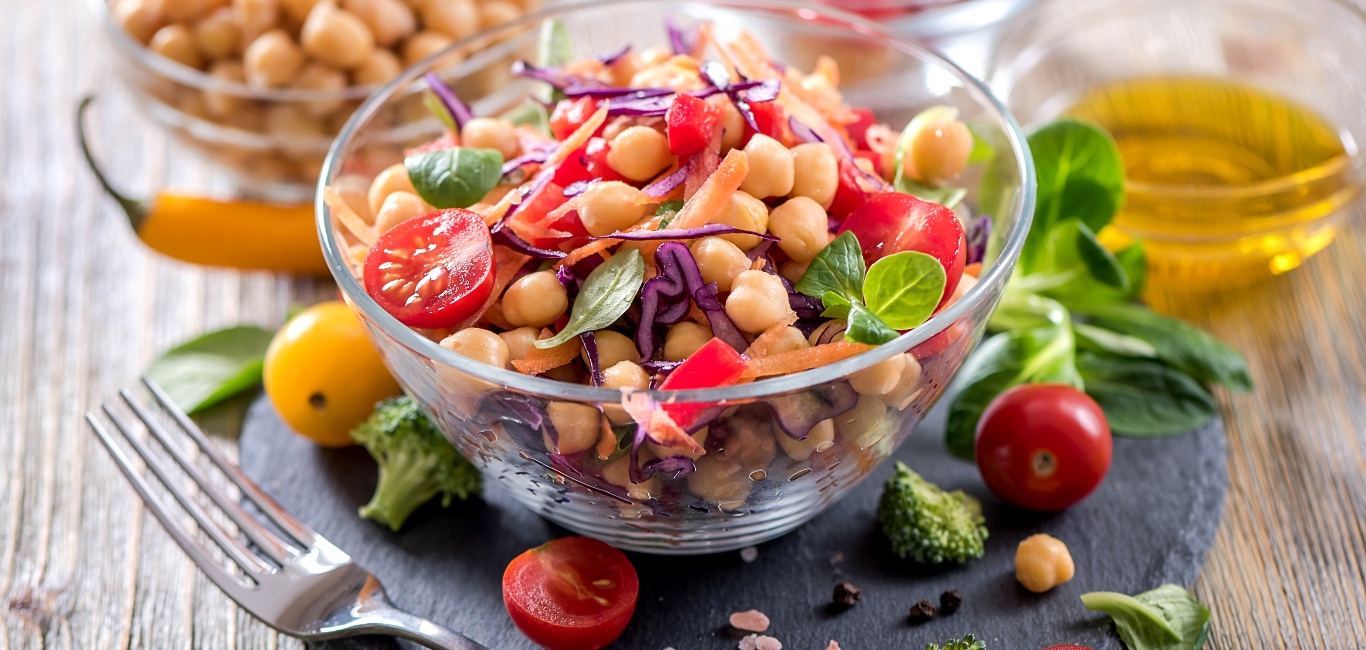
The popularity of vegan or fully plant-origin diets is on the rise as an increasing number of individuals are becoming aware of the health benefits of such foods.
Vegan foods are purely plant origin and have neither meat nor dairy items in them. Some people are wary of nutritional deficiencies that may arise from reducing animal protein intake. However, research indicates that thoughtful dietary planning can get vegans their nutritional due.
It has also shown that people can lower the risk of certain health disorders by adopting a plant-based diet. A lower body-mass index is also possible from vegan foods compared to meat-based foods.
The advantages of replacing animal protein with plant-based alternatives have inspired many to embrace this way of life. To meet the increasing demand, a wide range of innovative products, including plant-origin protein powders, nuggets, vegan curd and even plant-based beverages is available.
Addressing a few common concerns, Ifraah Kulsum Khan, a clinical dietitian from Bengaluru, reassures us, “It is entirely possible to get sufficient amounts of protein from a balanced and diverse vegan diet.”
A wide platter of choices
Vegan diets offer variety and have the potential to satiate us while also fulfilling our nutritional needs.
Mention the word protein and it often brings to mind images of a meat-filled plate or a glass of milk. However, proponents of vegan diets are demonstrating from their experience that plant-based proteins, when appropriately planned, can do the job equally well.
Benefits galore
When you embark on a vegan meal, consider including these protein-rich options obtained purely from plants.
Soya beans and soya products: Tofu, tempeh, edamame and soya milk are commonly used soya products. Apart from being protein-rich, soya also provides fibre, iron and calcium. It contains isoflavones, which are plant compounds associated with various health benefits.
According to a 2016 review published in the journal Nutrients, soya intake within recommended limits is linked to a reduced risk of heart disease, improved skin health, enhanced bone health, decreased cancer risk and improved cognitive function.
Lentils: Lentils, a type of legume, have abundant protein and fibre. They are versatile and can be prepared in many ways as soups, salads and stews.
A 2017 study published in the International Journal of Molecular Sciences suggests that legumes such as green peas, chickpeas, cowpeas, yellow peas, moong beans and peanuts have cardioprotective, anti-inflammatory, nephroprotective and anti-diabetic properties.
Nuts and seeds: They offer a combination of protein, fibre and healthy fats. They can be enjoyed on their own or added to trail mixes, salads and smoothies.
Cereal-pulse ratio
Whole grains: They are excellent sources of protein, fibre and vitamins. They can be eaten in the form of bread, pasta, rice or cereals. When aiming for protein quality comparable to animal protein, it is essential to consider the cereal-to-pulse ratio.
According to Ifraah Khan, the recommended ratio is three or four parts of cereal for every part of the pulses.
Energising athletic actions
The documentary The Game Changers on Netflix champions veganism. It shows how athletes worldwide are embracing plant-based nutritious diets, It challenges conventional notions and dependence on meat and dairy products.
Many athletes have put health and environmental impact at the top of their priorities and are increasingly adopting plant-based supplements and personalised diets to enhance their athletic performance.
Srishti D Chatlani, a sports nutritionist from Bengaluru, says, “By strategically combining plant-based sources, athletes can fulfil their daily nutritional requirements.” However, she advises people to remember to maintain nitrogen balance while planning these diets.
When it comes to nutrition for athletes, individual tolerances and requirements vary greatly. Following textbook values may not be ideal for everyone. Chatlani recommends taking professional guidance to create a personalised diet plan that also addresses specific athletic needs.
Timing also counts
Along with meal planning, Khan emphasises meal timing. She says taking protein within 30-60 minutes after a workout supports muscle growth and repair. She also suggests including plant-based protein supplements such as pea protein, rice protein or soya protein into the diet but with professional advice.
Carbohydrates play a vital role in supplying the additional energy that athletes need. Vegan sources such as tomato, broccoli, pumpkin, beetroot and cabbage are rich in simple and complex carbohydrates, along with their antioxidant and anti-inflammatory properties.
Read more | Choosing between animal and plant protein: CFTRI chief explains the science

















